“I Will Always Carry What I Saw and Felt in Bangladesh”
Getting to travel to Bangladesh with my classmates and professors after a semester-long course about climate change and sustainable development in the nation was such a unique and unparalleled experience.By: Harli Strauss-Cohn ’24 Monday, August 28, 2023 10:06 AM
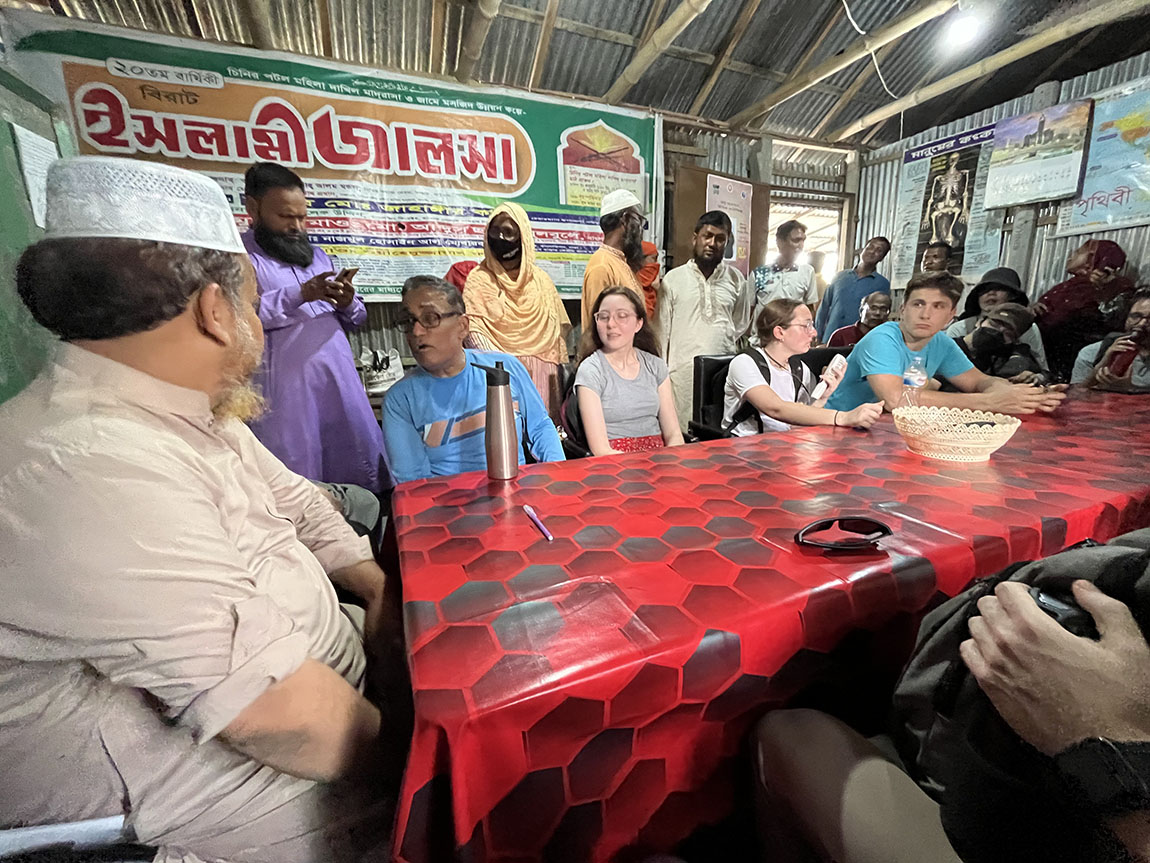 Muhlenberg students and faculty visit a madrassa in Bangladesh that's part of a community built on a char, a temporary island formation created by vast swaths of land being taken by the tide and deposited elsewhere. Photos by Lukas Birgel ’24
Muhlenberg students and faculty visit a madrassa in Bangladesh that's part of a community built on a char, a temporary island formation created by vast swaths of land being taken by the tide and deposited elsewhere. Photos by Lukas Birgel ’24In late May and early June, students who took the Muhlenberg Integrative Learning Abroad (MILA) course Climate Change & Sustainable Development in Bangladesh traveled to the country to see some of what they’d learned in action. The trip was led by the course’s instructors, Professors of Political Science Jack Gambino and Mohsin Hashim. Here, Harli Strauss-Cohn ’24, an international studies and sustainability studies double major, recounts her experience with the course and the trip.
I was interested in this course because the nexus of climate change and human encounters/experiences is what my studies are all about. I am unsure of how many opportunities I will have in my life to travel to Bangladesh and wanted to take hold of this one while it was in front of me.
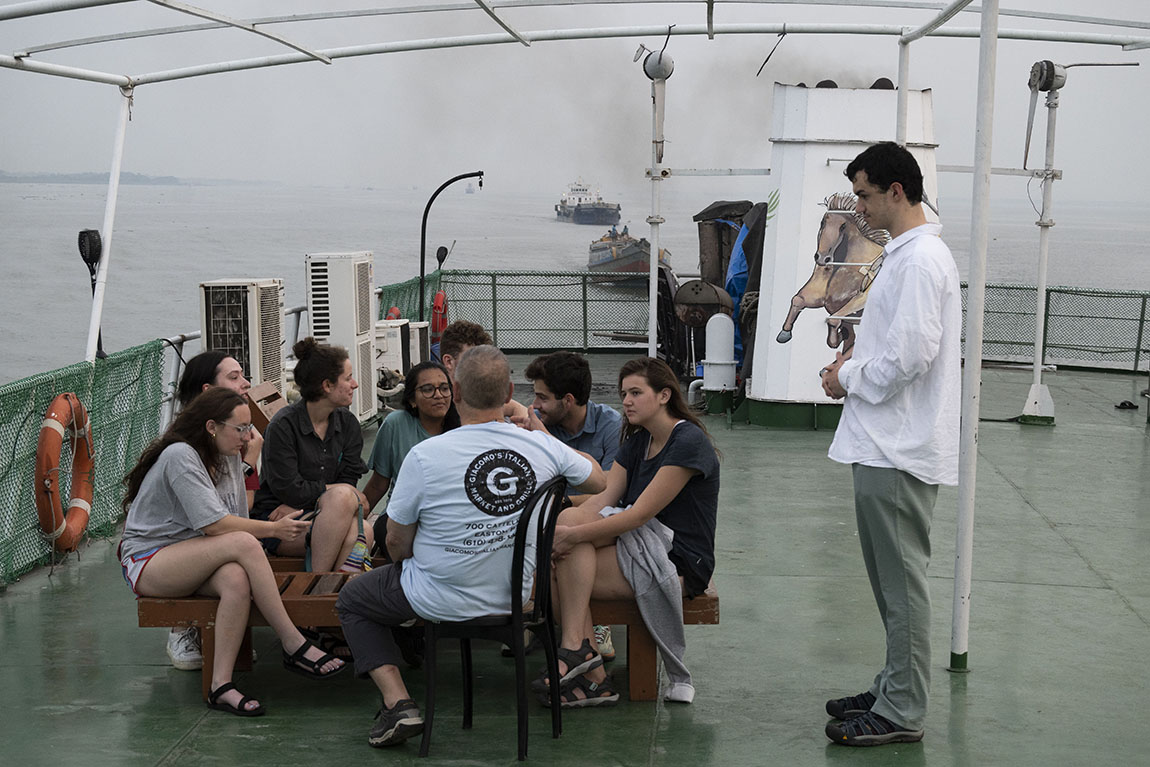
The group travels by boat from Dhaka to the Sundarbans, the world's largest mangrove forest.
Getting to travel to Bangladesh with my classmates and professors was such a unique and unparalleled experience. Having the background knowledge gained through the course, some familiarity with the people I traveled with and the guidance/framework of the trip all made it such that I was not consumed with the logistics. This made it more possible to be able to fully immerse myself in our surroundings.
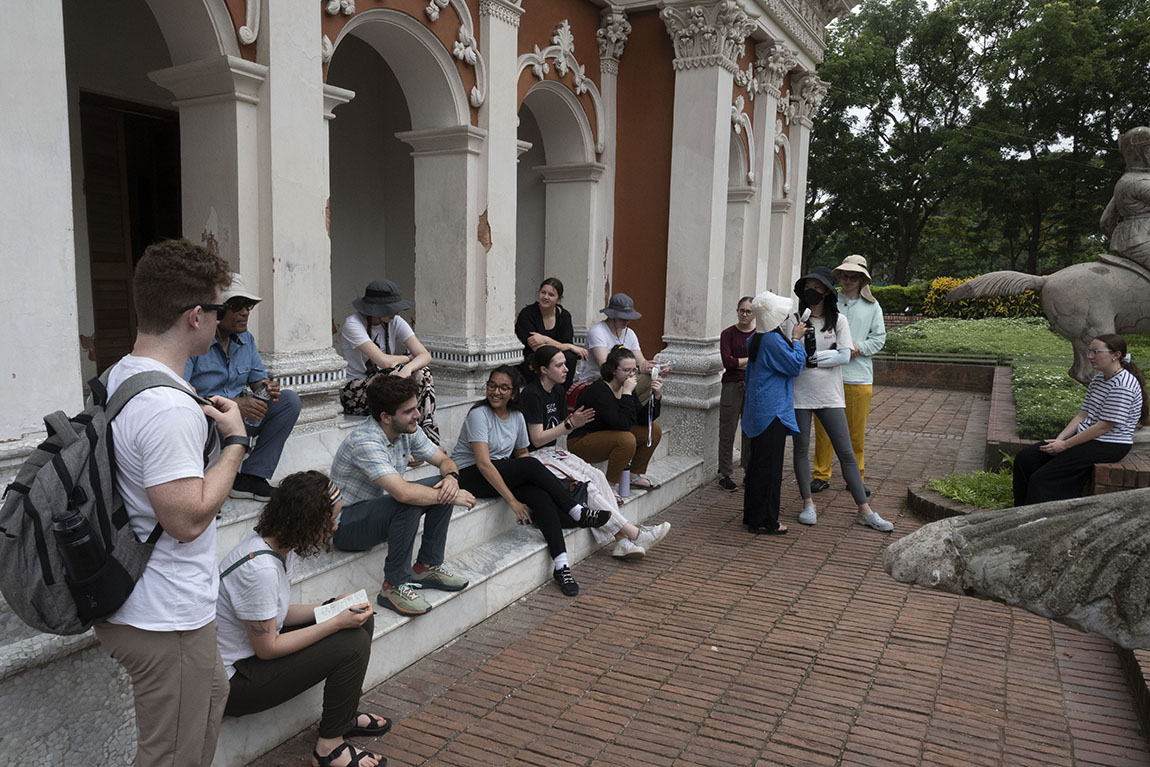
The group visits Sonargaon, the old capital of Bangladesh during the Mughal era.
An experience that was particularly impactful for me was a day when we were in Gaibandha, in the northern part of Bangladesh, and got to meet with people participating in many of the programs we had studied from a political and organizational perspective in class. For example, microcredit networks in Bangladesh target women in particular, offering small amounts of money that can really help them transition into creating a more sustained livelihood. Microcredit is more than a loan — it fosters connections and community support through regular group meetings and check-ins.
While it is one thing to read articles about the program, it was absolutely expansive and connecting to actually sit in on a microcredit circle meeting. Hearing women share their stories, seeing their notebooks of how they keep track of money and sharing smiles and laughter brought to life what we had previously studied with just facts on paper alone. That day we also saw many of the agriculture adaptations [to climate change] we had learned about. I have a particular interest in and love of farming, so being with someone sharing how they tend to their soils with practices learned from some of the development organizations we visited in Dhaka (the major city in Bangladesh) was so awesome.
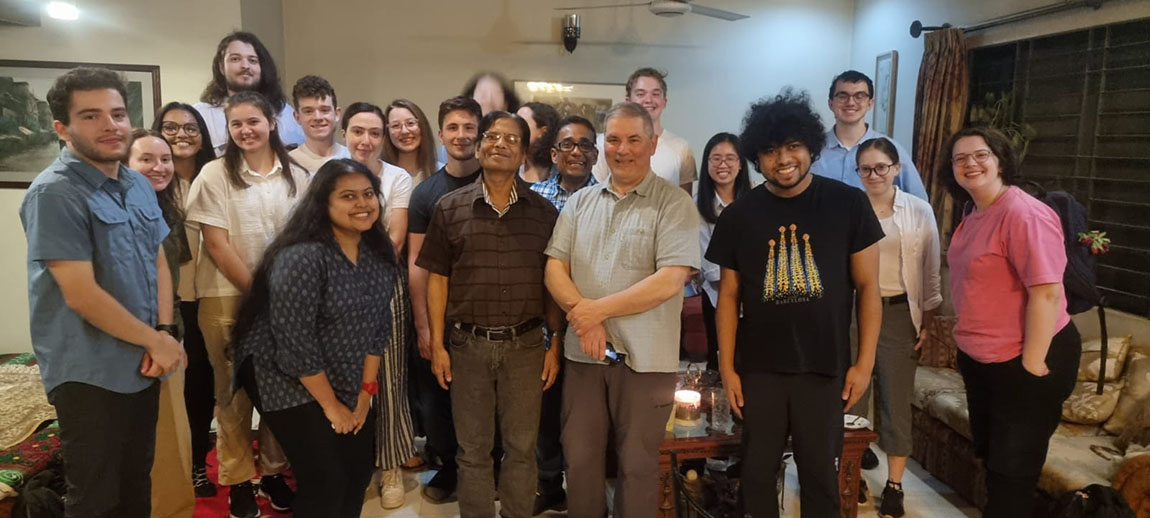
The class visits a friend of Hashim's, Mustafizur Rahman, an economist and the executive director of the Center for Policy Dialogue, who invited the group to have dinner with his family after their first full day in Dhaka.
Oftentimes in the United States, we create hierarchies of power and changemakers. But these hierarchies often distance, disempower and discourage real cross-cutting policies and programs from taking root. In Bangladesh, we saw how different scales of organizations and government interact with each other. The top lawyer at the Bangladesh Environmental Lawyer Association had just come from a meeting with someone at Parliament before coming to speak with us. And when we were at one nongovernmental organization, they had connections to the other organizations we had visited.
This experience has expanded how I think of sustainability, humanized so many issues I have studied and empowered me personally in my travels. Moving forward, I will always carry what I saw and felt in Bangladesh and continue striving and working to better our societal and environmental connections.
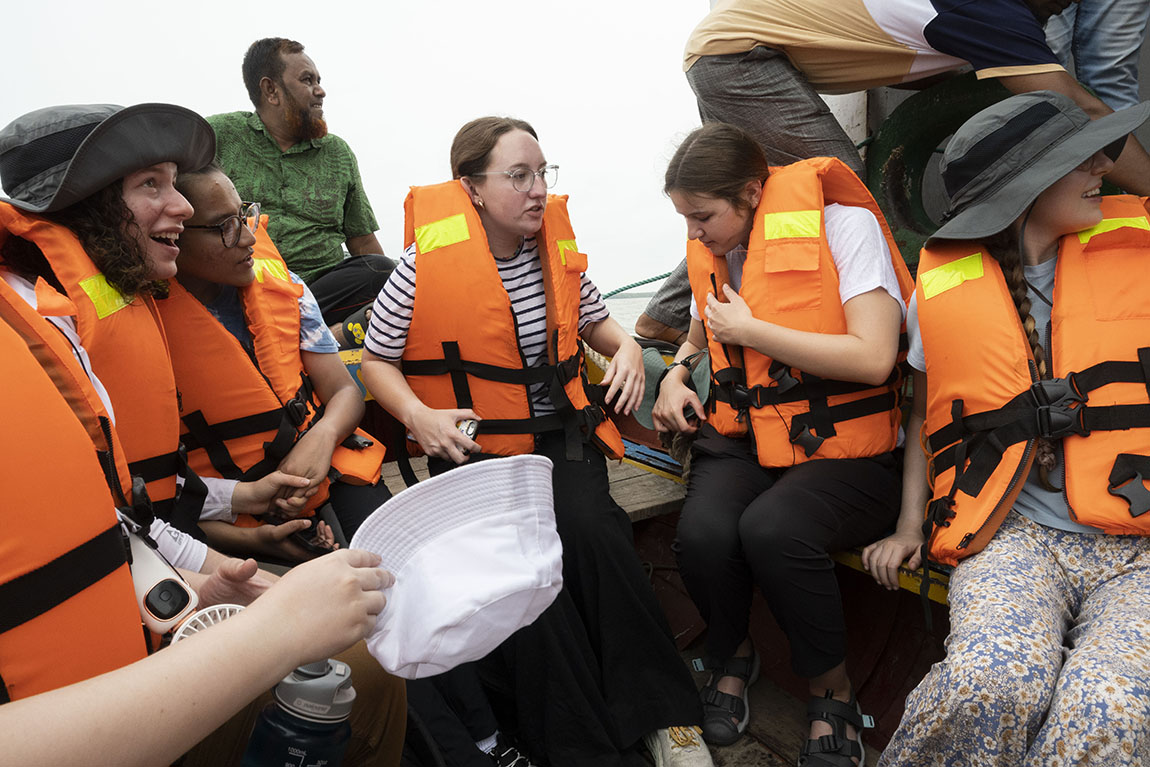
The group gets into a motor boat to travel down a river tributary into the mangroves of the Sundarbans once they'd reached the Bay of Bengal.
Read about the 2019 Bangladesh MILA here.
